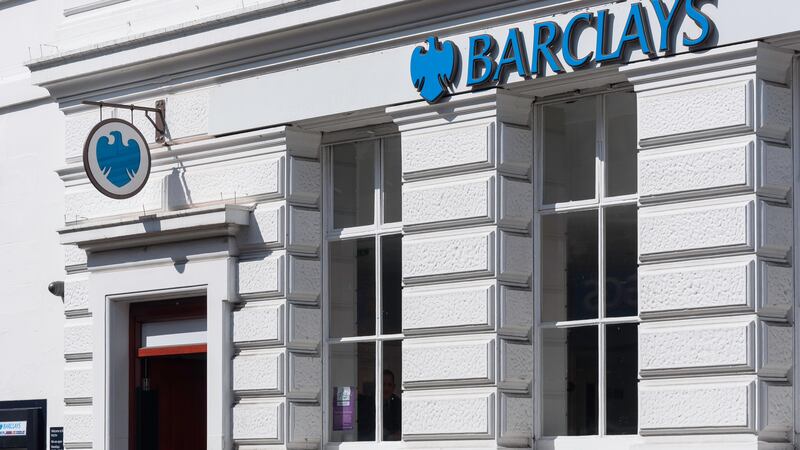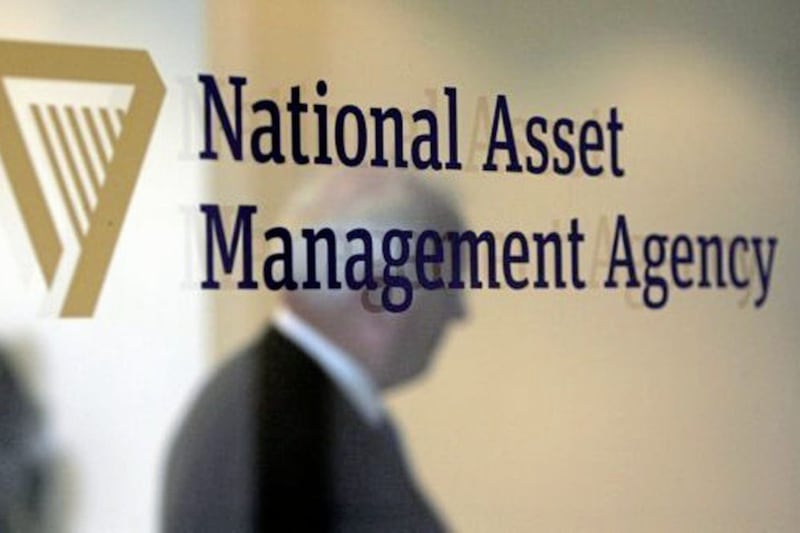The lawyer at the heart of Northern Ireland’s biggest financial scandal has broken his silence, revealing the bitter dispute with his former employer.
Ian Coulter, the former managing partner of Belfast law firm Tughans, said he felt obliged to speak out “to correct misleading assertions made by others” in the controversy surrounding the £1.3 billion deal by US investment firm Cerberus to buy Nama’s northern property loan portfolio.
In his first statement since being named by The Irish News as the partner behind a £7.2 million transfer to an offshore account – which was “reportedly earmarked for a Northern Ireland politician,” according to Independent TD Mick Wallace – Mr Coulter claimed:
- no politician, relatives of politicians (or political party north or south) were involved in the initial ‘concept’ of a sale of Nama’s northern assets
- no politician, any relative of any politician (nor political party north or south), was ever to receive money in any way as part of the deal.
- he did not hide the money from the Tughans partnership, rather it was paid into a Tughans company account supervised by the firm. He said that in September 2014 he instructed a colleague at Tughans to transfer a portion of the money into an external account which was controlled only by him.
- he transferred the money back in early December 2014 and brought it to the attention of the partnership.
It comes as Independent TD Mick Wallace is expected to speak about Nama issues again in the Dáil during leader’s questions from noon today.
He is also due to specifically address issues surrounding the Nama Northern Ireland property portfolio, dubbed ‘Project Eagle’, during statements on Northern Ireland in the Dáil from 3.20pm.
Mr Coulter, a high-flying corporate finance lawyer, said he resigned from Tughans after “discussions” that took place between November and early January to “try to resolve the matter” broke down. He left the firm in early January.
In a broadside at his former employer, the 43-year-old said the money was was not “discovered” or “retrieved” by Tughans or the Law Society.
“In fact, I transferred the money back to Tughans in early December 2014 and I brought this to their attention,” he said.
He said £7.5m was paid into a Tughans “company account” (a business account, rather than a client account, where fees would be paid into and expenses paid out).
A portion was retained by Tughans and the remainder of the money was then transferred by a colleague to the offshore bank account under his instruction.
Tughans have previously stated that the transfer was carried out “without the knowledge of the partners”.
In a statement to The Irish News, Tughans said it “notes the assertions made by Ian Coulter. The firm strongly disagrees with his version of events surrounding the treatment, discovery and retrieval of the professional fees and his exit from the practice and it has passed all documentation relating to this to the Law Society”.
The Irish News understands that “the remaining portion” of the fees referred by Mr Coulter and sent to the Isle of Man was £7.2m.
Nama’s chairman Frank Daly has also said on record that this was the sum that he had been informed was transferred offshore.
This means that £300,000 was initially retained by Tughans following the transfer by Mr Coulter. Fees would typically be divided among the partnership.
The Law Society has said it has satisfied itself that any funds in question are secure whilst the investigation is on-going.
Mr Coulter also moved to distance Cerberus from the money transfer, which is under investigation by the UK National Crime Agency, the PSNI and Law Society.
Cerberus, he said, had “acted completely professionally and properly at all times in relation to this matter”.
The former Tughans’ lawyer was present at a secret meeting between First Minister Peter Robinson and Cerberus chairman Dan Quayle, a former US vice-president, 10 days before the Nama portfolio sale was announced.
It remains unclear in what capacity the lawyer attended this meeting and why it was not made known to Deputy First Minister Martin McGuinness.
While the first statement from Coulter since the scandal broke earlier this month gives a robust defence of his actions within Tughans, it leaves a number of questions unanswered:
- were any third parties directly or indirectly the intended beneficiaries of the £7.2m?
- what prompted the transfer of money back to Tughans?
- was Frank Cushnahan, a former Nama committee member who had worked on a previous bid by Pimco, one of the intended recipients?
- did Mr Cushnahan offer any advice, officially or unofficially, to Mr Coulter during the Cerberus transaction?
- why was an Isle of Man bank account used?
Mr Coulter, who has hired a Holywood-based public relations company to represent him, claims that “the reason for the transfer is a complex, commercially and legally sensitive issue and has been explained to my former partners at Tughans”.
He said it will be explained “to the appropriate authorities and those entitled to that information as part of my continuing cooperation with any investigation”.
The Irish News understands that The Law Society is privy to this information.
The legal regulator is due to answer questions posed by the assembly’s finance committee on Thursday as part of its inquiry into the controversial Nama sale.
Mr Coulter's lawyer is understood to have contacted the police and Law Society, which launched its investigation in January, with regards their separate investigations.
He has also not been approached by the assembly’s finance committee, although he is on a list of invitees circulated by Stormont.
Mr Coulter was at pains to point out that he had not received any personal financial benefit for his work on this transaction.
“Neither I nor any third party has received any part of the £7.5m fees,” he said.
He also argued that the Cerberus deal was good for the Northern Irish economy.
If such a deal had not taken place, he said, the Nama enforcement process posed a significant risk to a wide and diverse section of the business community and the whole Northern Ireland economy.
A significant number of local companies and business people were caught up in Nama and could not move forward with their businesses until their debt problems were resolved, he said, adding that a large number of employers would have faced bankruptcy as a very likely prospect and this would have created a further real risk to job creation.
The House of Commons’ Northern Irish Affairs Committee has complained that former Nama debtors in Northern Ireland are being treated “less than sympathetically” by Cerberus.
Nama, Cerberus, Tughans, Cushnahan and US law firm Brown Rudnick – all now familiar names in the pages of newspapers – will be poring over Coulter’s statement.
As will Pimco, the investment company that bid against Cerberus for the portfolio and which exited the race after it admitted to Nama that it had taken advice from Mr Cushnahan, a business consultant who had previously served as a Nama adviser.
Pimco was said to have been asked to pay £15m to be divided between Mr Coulter, Mr Cushnahan and Brown Rudnick, before the deal fell through.
Cerberus retained Brown Rudnick and Tughans after Pimco’s departure but did not use Mr Cushnahan, who had an office in the same building as Tughan’s and used the law firm’s library to greet clients.
In April Cerberus agreed a deal to buy up more than 850 Nama-held assets for €1.3bn – a writedown of more than €3bn of taxpayers’ money.
Tughans provided local counsel on the Project Eagle deal. The £7.5m was paid to Tughans via Brown Rudnick.








